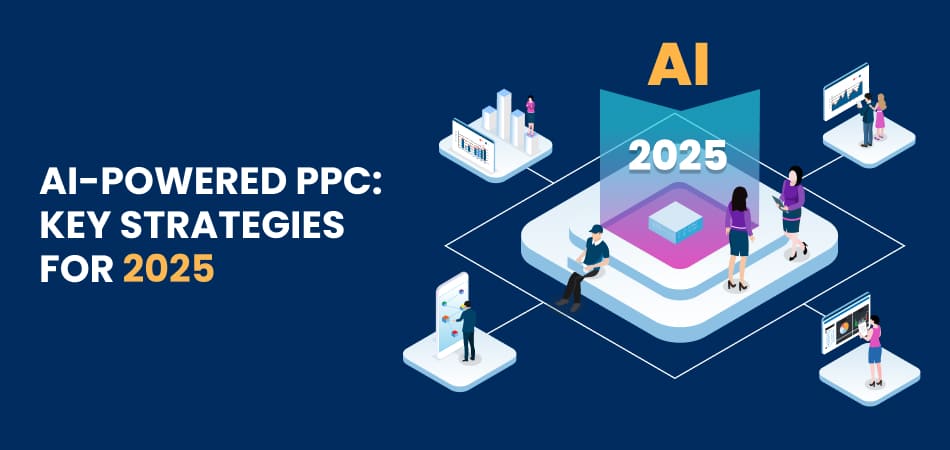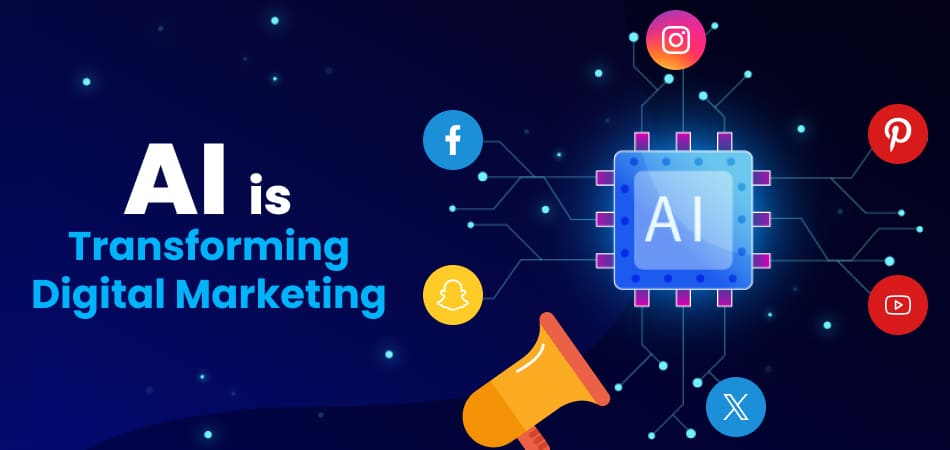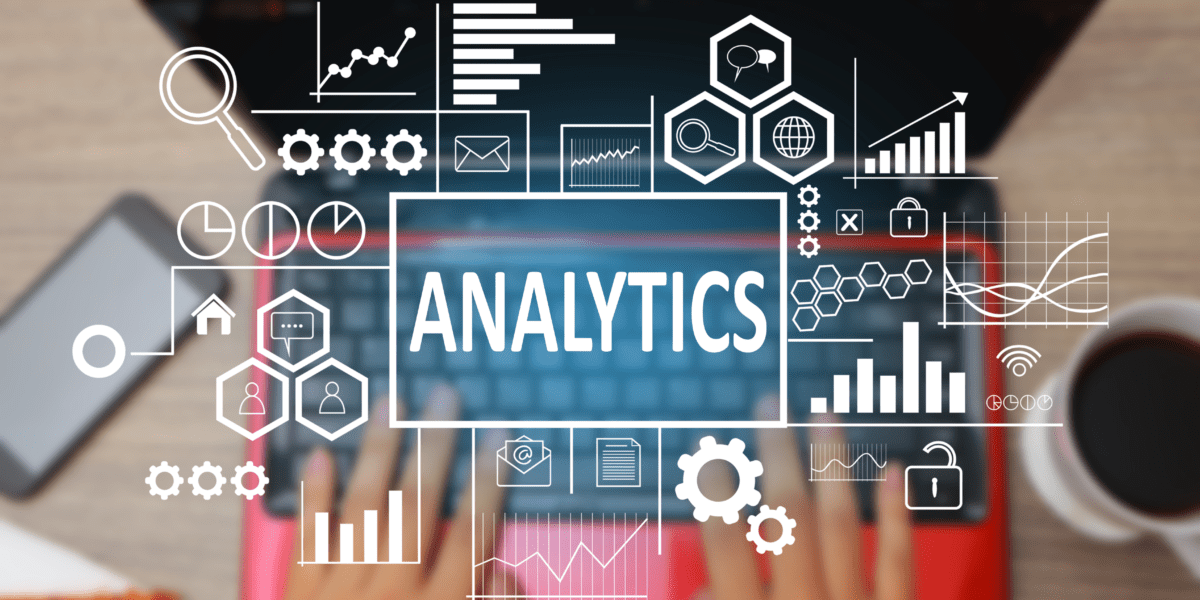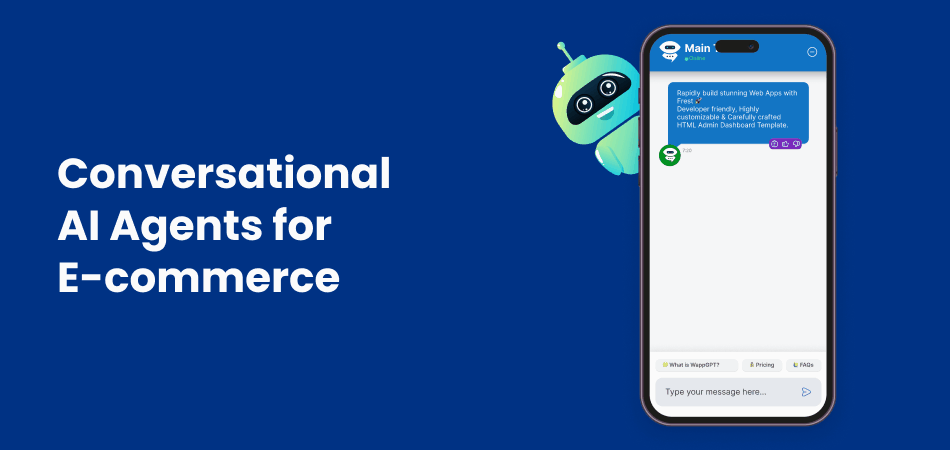Introduction
Pay-Per-Click (PPC) advertising is experiencing a transformative shift, driven by the rapid adoption of artificial intelligence (AI). AI-powered automation, data-driven insights, and predictive analytics have redefined how marketers optimize campaigns, target audiences, and maximize return on investment (ROI). As we enter 2025, AI has become an indispensable tool for PPC success.
This blog explores the evolving role of AI in PPC advertising, outlining key strategies, best practices, and future trends that marketers must embrace to stay ahead in an increasingly competitive landscape.
The Role of AI in PPC Marketing
AI plays a crucial role in enhancing PPC campaigns by automating complex processes, optimizing ad performance, and enabling data-driven decision-making. Here are some of the most significant AI-powered innovations in PPC:
- Automated Bidding – AI continuously adjusts bids in real-time, optimizing for conversions and ROI.
- Enhanced Audience Targeting – AI-driven analytics segment audiences based on behavioral data and intent.
- Ad Copy Generation & Optimization – AI tools craft high-performing ad copies tailored to user preferences.
- Click Fraud Prevention – AI identifies and blocks fraudulent clicks, ensuring budget efficiency.
- Performance Forecasting – AI predicts campaign outcomes and provides actionable recommendations.
- Dynamic Ad Customization – AI adjusts ad content dynamically based on user behavior.
- Multichannel Integration – AI ensures seamless campaign performance across platforms like Google, Facebook, and Amazon.
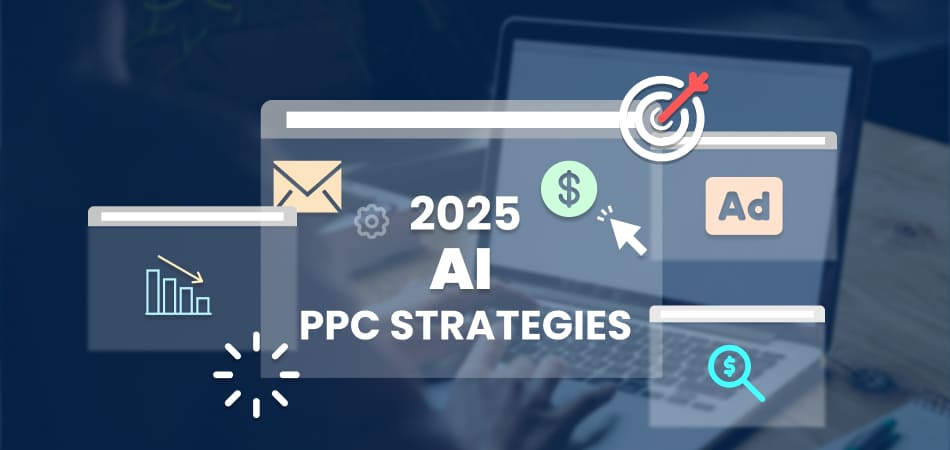
AI-Powered PPC Strategies for 2025
1. Leveraging Smart Bidding for Higher Conversions
Smart Bidding is an AI-driven automated bidding strategy that optimizes for conversions and ROAS (Return on Ad Spend). Key Smart Bidding strategies include:
- Target CPA (Cost-Per-Acquisition) – Ensures cost-effective conversions by setting a fixed acquisition cost.
- Target ROAS (Return on Ad Spend) – Optimizes bids to maximize revenue while maintaining profitability.
- Maximize Conversions – AI analyzes past campaign data to allocate budget for the best-performing ads.
- Enhanced CPC (ECPC) – Adjusts manual bids to maximize conversion potential.
- Seasonality Adjustments – AI adapts bid strategies based on seasonal trends and consumer behavior shifts.
2. AI-Driven Audience Segmentation & Targeting
AI enables precision targeting by analyzing vast amounts of user data and segmenting audiences based on behavior, demographics, and purchase intent.
- Lookalike Audiences – AI identifies new potential customers similar to existing high-value users.
- Predictive Targeting – AI anticipates user needs and preferences before they take action.
- Dynamic Remarketing – AI retargets users with personalized ads based on their browsing history and interactions.
- Behavioral Analysis – AI evaluates past user interactions to tailor ad placements.
- Geo-Targeting Enhancement – AI adjusts ads dynamically based on location-specific trends.
3. Conversational AI & PPC Automation
Chatbots and AI-powered virtual assistants can significantly enhance PPC campaign performance by:
- Providing real-time customer support and engagement.
- Collecting valuable insights for refining audience targeting.
- Offering AI-driven product recommendations to improve conversion rates.
- Automating responses to frequently asked questions to drive lead nurturing.
4. AI-Powered Ad Copy Optimization
AI-powered tools such as Google’s Responsive Search Ads and OpenAI’s ChatGPT assist in generating and optimizing ad copy dynamically:
- AI-driven A/B testing helps determine the most effective messaging.
- Machine learning algorithms analyze user sentiment to craft compelling copy.
- Dynamic ad variations enhance personalization and engagement.
- AI refines keyword strategies to match changing search trends.
- Context-aware advertising ensures messaging aligns with user intent.
5. Predictive Analytics for PPC Success
AI-driven predictive analytics enable marketers to make data-backed decisions by forecasting key performance indicators (KPIs), such as:
- Click-Through Rates (CTR)
- Conversion Probability
- Budget Allocation Efficiency
- Ad Relevance Score Improvement
- Customer Lifetime Value Prediction
By leveraging predictive insights, marketers can proactively adjust campaigns for optimal performance.
AI-Driven PPC vs. Traditional PPC: A Comparative Analysis
| Feature | AI-Driven PPC | Traditional PPC |
| Bidding | Automated, real-time optimization | Manual bid adjustments |
| Audience Targeting | AI-driven predictive segmentation | Basic demographic targeting |
| Ad Copy Creation | AI-generated, dynamic ad copy | Manually written static ads |
| Fraud Detection | AI detects and prevents click fraud | Limited fraud detection |
| Budget Allocation | AI optimizes budget across campaigns | Manual budget adjustments |
| Performance Forecasting | Predictive analytics-based adjustments | Reactive adjustments |
| Multichannel Management | AI automates integration across platforms | Separate campaign strategies |
Overcoming Challenges in AI-Driven PPC
While AI offers immense benefits, marketers must address certain challenges to ensure successful PPC campaigns:
- Data Privacy Regulations – Marketers must comply with data privacy laws such as GDPR and CCPA when using AI-driven audience targeting.
- Algorithm Dependence – AI recommendations should be reviewed and adjusted to maintain control over campaign performance.
- Learning Curve – Businesses need to invest in AI training and upskilling to maximize their AI PPC capabilities.
- Budget Allocation – While AI automates spending decisions, human oversight is crucial to prevent overspending.
- Bias in AI Models – AI tools must be monitored for potential bias in targeting and personalization.
- Integration Challenges – Ensuring AI tools work seamlessly across different PPC platforms can be complex.
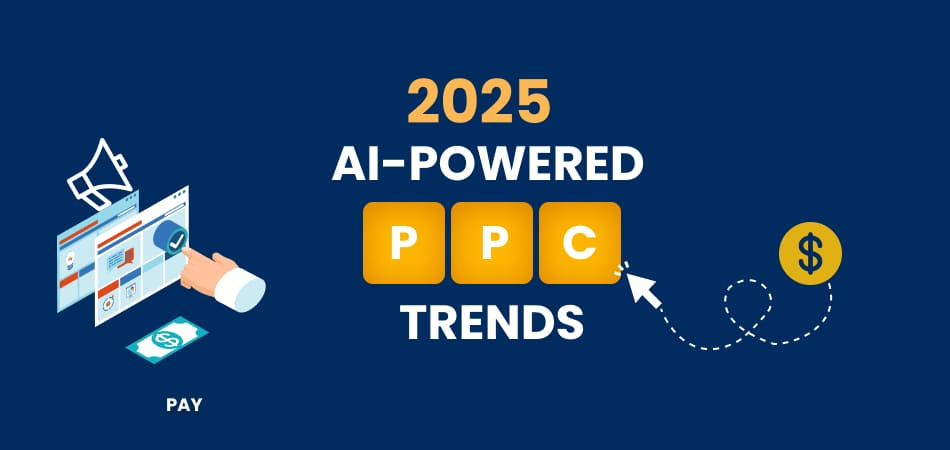
Future Trends in AI-Powered PPC for 2025
As AI technology continues to evolve, here are the emerging PPC trends that marketers should anticipate:
- Hyper-Personalized Ads – AI will create ultra-personalized ad experiences based on real-time user interactions.
- Voice Search Optimization – AI-driven PPC campaigns will adapt to the increasing use of voice search.
- AI-Generated Video Ads – AI-powered tools will create engaging, high-quality video ads at scale.
- Cross-Platform AI Integration – AI will unify PPC campaigns across multiple platforms like Google, Facebook, Amazon, and TikTok.
- Real-Time AI Adjustments – AI will continuously refine ad targeting and messaging in response to shifting market trends.
- AI-Driven Sentiment Analysis – AI will gauge consumer sentiment in real-time to adjust campaign tone.
- Predictive Budgeting – AI will forecast budget needs dynamically, adjusting in real-time for maximum efficiency.
- Voice Commerce Advertising – AI will optimize PPC strategies for smart speaker and voice-enabled search advertising.
Conclusion
The integration of AI in PPC advertising is no longer optional—it is essential for maximizing efficiency, accuracy, and ROI. AI automates bidding, enhances targeting, optimizes ad content, and provides predictive insights that enable marketers to craft high-performing campaigns.
To succeed in 2025, marketers must fully embrace AI-driven strategies such as smart bidding, audience segmentation, predictive analytics, and dynamic ad copy generation. By leveraging AI, businesses can stay ahead of the competition and drive greater PPC success.
Are you ready to elevate your PPC strategy with AI? Start optimizing today to achieve outstanding results in 2025!
